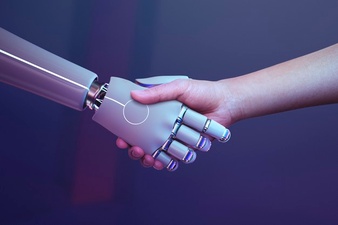
As the customer’s demand for real-time response increased, companies have adopted AI for prompt replies and quick actions on customer queries. i.e. Chatbots. Machine learning which is programmed to converse with the customers in a specific written or spoken language. They understand the queries as per the keywords involved in them. It has covered the major IT sector globally but is still expanding its boundaries and developing every day. Since the leading companies are using chatbots, their usage becomes imperative. Therfore, we are here with chatbot trends and statistics to keep our readers in sync with the ongoing technological advancements.
Before discussing the chatbot trends and stats of chatbots, let’s understand how chatbots benefit users and are helpful to businesses.
- Offers immediate availability to your customers
- Conversing with customers; quick replies, and an early solution
- Understanding visitor needs by their scrolling patterns, interests and habits and previous search queries
- Generating leads based on inputs of the visitors
- Arranging a human customer representative
- Provide insights into customer behaviour
Latest Chatbot Trends
1. NLP-Driven Conversational AI Chatbots
As the name suggests, chatbots were made to cater the customer queries quickly for better user experience and engagement on the website.
These chatbots are driven by NLP (Natural Language Processing), primarily used by the customer service department in corporations to provide solutions as per the previous conversations. They assess the keywords used by customers and accordingly respond with solutions.
Since chatbots have been in usage for a long time, they have become more sophisticated and enhanced their human mimicking, leading to more realistic conversations.
Also, one can save around $0.70 per customer interaction by 2022, and nearly 70% of white-collar employees will be regularly conversing with chatbots.

2. Chatbots And Payments
Now the chatbots are not meant for customer service only. They have a lot more to offer as a part of their services.
When you open a payment transfer app, you might have seen ‘Pay Electricity Bill’ or ‘Recharge Mobile’ and other specific payments. These are the payment links showing you after analyzing the payment trends by machine learning (AI) and then processing the data to help the chatbot to offer a convenient payment experience.
3. Emotional Intelligence Of Chatbots
“As emotional quotient(EQ) is preferred over intelligence quotient(IQ). If the same thing could be done in chatbots, it would be a value add.” With this belief, chatbots are now upgrading their EQ and serving the customers as per their needs.
According to the emotion detection learning study from Microsoft, a person’s text pattern depicts their moods. Emotionally intelligent chatbots use such observations and understand user mood by their texting patterns, such as fast-typing, punctuations, capitals, etc.
4. Voice-Based Bots
With emerging conversational AI, voice bots came into existence where users can search for their queries by speaking out on the voice bot mike. According to a report by Accenture, users are more comfortable with voice-based search interfaces than text-based ones. It is widely used in e-commerce, travel, healthcare, insurance, and retail industries.

5. Analytics And Chatbots
It is essential to analyze each aspect of the business, so as customer relationship. With the help of chatbots, it becomes easy to gather data for this branch. Chatbots keep the following data:
- Each asked query
- Answers delivered
- Response to the answers/customer feedback
- Queries transferred to agents
This data helps to improve AI and chatbots and human customer relationships too.
6. Multilingualism
In this digital era, companies serve clients globally that demand multilingualism when it’s about building customer relationships. One may not be able to make customers in Germany if they do not know the language ‘German.’ Increasing the workforce will increase the expenses.
To avoid the scenario, chatbots offer multilingualism so that a mere language will not become a hindrance to one’s business expansion.
7. Work From Home Assistance
Companies are shifting to work from home or hybrid work culture. According to the Gartner report, 74% of companies plan to opt to work from home for about 5% of their employees. Further, 4% of companies will be shifting their 50% workforce to work from home post-pandemic.
Chatbots can support remote working employees as they can be used as automated assistance for:
- Work from home policies & FAQs
- Technical queries
- Work from home tips
- Employee health tracking, etc.

8. Response Automation On Social Media
Chatbots help social media to create automated responses to a specific set of questions. Also, a chatbot can suggest the questions to the user as per the responses it may be getting.
Usually, it is seen on Facebook and Instagram so that visitors get an immediate revert from the business and do not lose interest. Also, it helps in lead generation through social media.
9. Chatbots In The Recruitment Process
Usually, in companies with a massive workforce, the recruiters need additional support for filtering resumes, assessing candidates, scheduling interviews, and responding to general FAQs.
A recruiting chatbot can be a helping hand for HR to perform these tasks. It fastens the recruitment and onboarding process.
10. Self-Learning Bots
Some chatbots are intelligent enough to feed themselves. Companies need not spend time revising their memory and information.
These chatbots analyze the user response, and according to their feedback, they become the better versions of themselves.

Some Interesting Statistics About Chatbots
Chatbots are universally accepted and are prominent everywhere. If you are not sure whether you need a chatbot for your business or not. There are some facts about chatbots that will help you in decision making.
- Chatbots are expected to save $8 billion yearly for business by 2022.
- Businesses will be able to save 2.5 billion hours on customer interaction by 2023.
- By 2023, e-commerce transactions are estimated to surpass a value of $112 billion.
- 27% of consumers prefer AI support tools
- 1.4 billion global population is using chatbots
- 64% of internet users appreciate the 24-hour service of chatbots
- Interest in chatbots exponentially increased by 160% in 2018.
- Chatbots have the potential to cut operational costs by 30%.
- 50% of business plans include more budgets for chatbots than mobile apps
Summary
After considering all the facts about chatbots trends, it is safe to say that the customer relationship department will experience a revolutionary change in the coming years. Any business without a chatbot will suffer to beat the competition in the market. If you are planning to start a business where customer support plays an important role, it is recommended to have budgets for chatbot programming.
